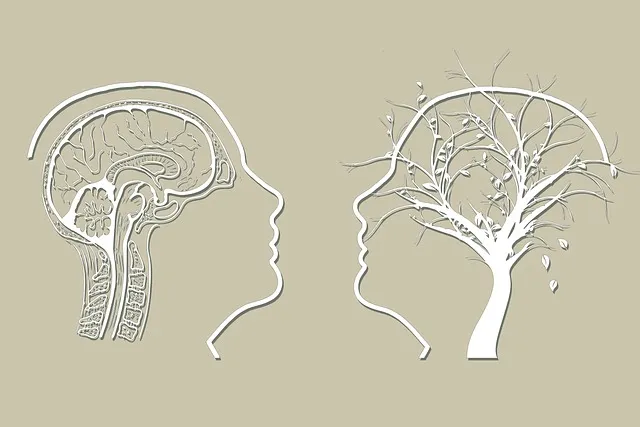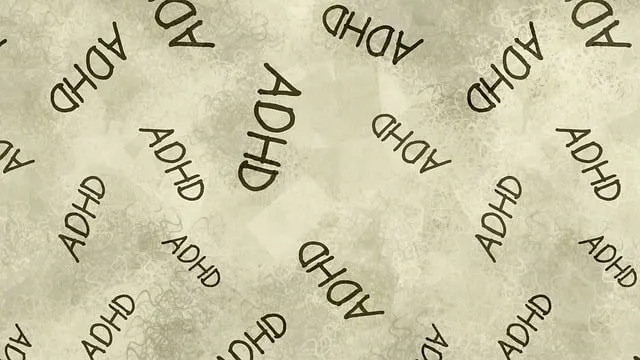Mental illness diagnosis at Kaiser Highlands Ranch faces challenges but is improved through advanced assessment tools, thorough therapist training, burnout prevention, and stigma reduction campaigns. Their comprehensive approach includes workshops on innovative diagnostic techniques, empathy-building strategies, continuous performance evaluation using quantitative and qualitative data, mindfulness meditation integration, and advocacy for holistic mental health policies. This patient-centric model, coupled with rigorous training and cultural competency, makes Kaiser a top choice for those seeking good therapists in Highlands Ranch, as evidenced by search term relevance ("does Kaiser have good therapists Highlands Ranch").
Mental illness diagnosis accuracy is a critical aspect of patient care, and efforts to improve it are ongoing. This article explores various strategies aimed at enhancing diagnostic precision, focusing on the work done by organizations like Kaiser. We delve into the challenges posed by mental health’s complexity, highlighting Kaiser’s initiatives in training and resource allocation. Additionally, we discuss evaluating therapist performance, patient-centric approaches, and the importance of continuous learning for up-to-date treatment techniques, including those available at Kaiser Highlands Ranch.
- Understanding the Challenge: The Complexity of Mental Illness Diagnosis
- Kaiser's Approach: Training and Resources for Improvement
- Evaluating Therapist Performance: Metrics and Feedback Systems
- Patient-Centric Strategies: Enhancing Communication and Trust
- Continuous Learning and Adaptation: Staying Current in Treatment Techniques
Understanding the Challenge: The Complexity of Mental Illness Diagnosis

Mental illness diagnosis is a complex and multifaceted challenge, often hindered by various factors that contribute to its complexity. The vast array of symptoms, varying presentations across individuals, and the comorbidity of conditions make accurate identification a daunting task. This complexity is further exacerbated by the subjective nature of many assessments, where personal experiences and interpretations play a significant role. For instance, what appears as mild anxiety to one person might be a severe symptom of an underlying disorder for another, making differentiation crucial yet intricate.
In addressing this challenge, organizations like Kaiser, with their presence in areas such as Highlands Ranch, offer hope through dedicated efforts in improving diagnosis accuracy. They employ advanced assessment tools, provide extensive training for therapists and healthcare providers, and foster environments that prioritize burnout prevention to ensure sustained mental health support. Alongside these initiatives, mental illness stigma reduction efforts also contribute to creating a more accepting society, encouraging individuals to seek help without fear of judgment. Additionally, implementing effective burnout prevention strategies for healthcare providers is vital to maintaining the quality of care, as tired and overworked professionals may inadvertently impact diagnosis accuracy and patient outcomes.
Kaiser's Approach: Training and Resources for Improvement

Kaiser’s Approach to Enhancing Diagnosis Accuracy centers around comprehensive training and resource allocation. They recognize that accurate mental illness diagnoses depend on a combination of advanced skills and up-to-date knowledge. To this end, Kaiser invests in regular workshops and seminars for their therapists in Highlands Ranch and beyond. These sessions cover various aspects of mental health assessment, including innovative techniques for diagnosing conditions like depression, anxiety disorders, and bipolar disorder.
The training extends beyond basic diagnosis to include empathy building strategies that foster stronger therapist-client relationships. By mastering these skills, Kaiser’s therapists can better understand the nuances of each patient’s experience, leading to more precise diagnoses and effective Mood Management plans. This commitment to continuous learning ensures that Kaiser remains at the forefront of providing quality Mental Wellness services.
Evaluating Therapist Performance: Metrics and Feedback Systems

Evaluating therapist performance is a crucial component of improving mental illness diagnosis accuracy and patient care. Metrics and feedback systems play a pivotal role in ensuring that therapists in places like Kaiser’s Highlands Ranch location maintain high standards. These systems often involve quantitative measures, such as tracking treatment outcomes and patient satisfaction rates, to assess the effectiveness of therapy sessions. For instance, measuring improvements in emotional regulation over time can be an essential indicator of a therapist’s success.
Additionally, qualitative feedback from both patients and colleagues is invaluable. Kaiser might implement mechanisms where clients can provide anonymous evaluations post-treatment, detailing their experiences. This data, combined with observations by supervisor therapists, contributes to a comprehensive understanding of each professional’s strengths and areas for development. Such practices foster a culture of continuous learning, ultimately enhancing the overall quality of mental wellness podcast series production and encouraging the integration of effective self-care practices within therapy sessions.
Patient-Centric Strategies: Enhancing Communication and Trust

In efforts to improve mental illness diagnosis accuracy, patient-centric strategies are gaining prominence, particularly in fostering enhanced communication and trust between patients and healthcare providers. At Kaiser, known for its high-quality services in Highlands Ranch, therapists prioritize open dialogue, actively listening to patients’ concerns and experiences. This approach not only helps in understanding the nuances of each individual’s mental health journey but also builds a supportive environment, encouraging honest disclosures.
By integrating mindfulness meditation techniques into treatment plans, Kaiser’s therapists further promote patient-centric care. Regular practice of mindfulness can reduce anxiety and improve focus, making it easier for patients to articulate their feelings. Moreover, considering broader aspects like Mental Health Policy Analysis and Advocacy and Burnout Prevention Strategies for Healthcare Providers, Kaiser remains committed to providing holistic care that addresses not just symptoms but also the underlying systemic challenges affecting mental health services.
Continuous Learning and Adaptation: Staying Current in Treatment Techniques

In today’s evolving landscape of mental health care, continuous learning and adaptation are vital to ensuring accurate diagnoses and effective treatments. At Kaiser, located in Highlands Ranch, therapists undergo rigorous training programs that stay current with the latest research and therapeutic techniques. This commitment to ongoing education not only enhances their clinical skills but also fosters a deeper understanding of diverse patient populations, including those from various cultural backgrounds.
The healthcare provider’s focus on cultural competency training empowers therapists to navigate the complex web of mental wellness issues while considering the unique needs and experiences of each individual. Additionally, risk management planning for mental health professionals is integrated into their professional development, ensuring they are equipped to handle challenges ethically and with resilience. Such efforts collectively contribute to improving diagnosis accuracy and ultimately benefiting patients seeking support at Kaiser Highlands Ranch.
Mental illness diagnosis accuracy has long been a complex challenge, but through comprehensive training programs, advanced resources, and patient-centric strategies, organizations like Kaiser are making significant strides. By implementing robust metrics for evaluating therapist performance and fostering continuous learning, Kaiser ensures that its therapists in Highlands Ranch and beyond remain at the forefront of effective treatment techniques. These efforts not only improve diagnosis accuracy but also enhance patient trust and outcomes, marking a promising future for mental health care.






